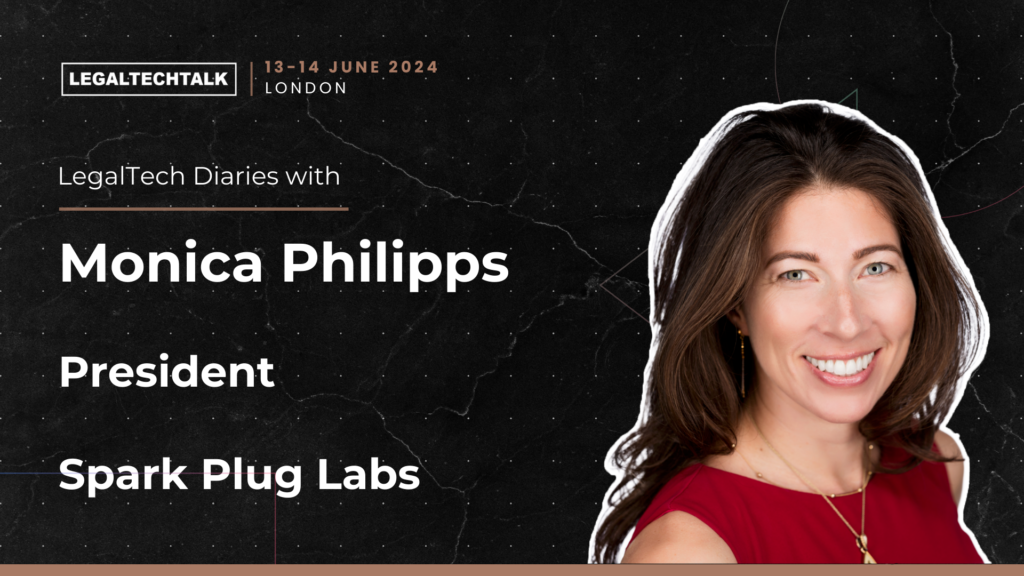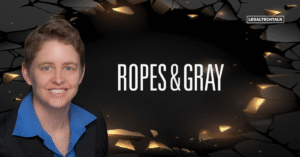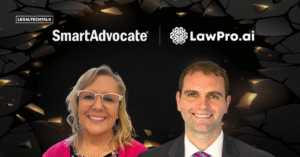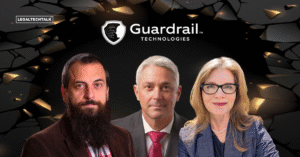In this interview, Monica Phillips, a mental health expert and leadership coach, provides practical advice for legal professionals on prioritising mental wellbeing, addressing bias, and cultivating an inclusive firm culture.
Monica outlines the importance of mental health for competent lawyering, emphasizing practices like mindfulness to enhance resilience, focus, and emotional regulation. She also delves into the imperative of eliminating bias within the legal industry, offering actionable steps firms can take to increase awareness and promote equity.
Additionally, Monica highlights the cultural shift occurring in some forward-thinking law firms, where leaders prioritize wellbeing, embrace coaching and empathy, and foster an environment of continuous learning and improvement. With her extensive experience working with top firms, Monica provides valuable insights and strategies for creating positive change within the legal profession.
Bradley Collins: Hi Monica, a pleasure to speak with you. Please tell me the most important pieces of advice legal professionals (and their leaders) need to know when it comes to mental wellbeing.
Monica Phillips: Mental wellbeing is not something for others. It is necessary for all of us.
Brain health is crucial to being a competent lawyer. Mental health is not bad or something that happens to other people. For example, when we don’t sleep, we neglect our brain health and are unable to do our best work. We are less focused and generally more irritable. We tend to make decisions that may not serve us well.
If we are overworked and tired, we may have difficulty bouncing back from negative emotions so when something triggers us at work, we are more likely to experience an amygdala response – the fight, flight, freeze, please reaction – which keeps us from activating our prefrontal cortex, the part of the brain necessary for executive functions.
Mental wellbeing is also about noticing the judgment we place on others, ourselves, and our circumstances. Judgment can be very harmful, even toxic, in a workplace environment.
A mindfulness practice, even just five minutes a day, can increase resilience, contribute to effectiveness and creativity at work, and support positive emotions and collaboration with others at work and at home.
If we have a bad day at work – whether that is in the office or from our home location – that negative energy can come with us back home to the people we love the most.
Gallup says that the most important leadership activity for developing high performing relationships is to offer meaningful feedback at least once a week. This could be as short as 15 minutes per week and include recognition or appreciation for recent work, current goals and priorities at work, or employee strengths or the things they do well.
As a positive intelligence coach, I like to teach people how to connect to their senses and their breath for greater mindfulness and emotional regulation so we can operate from a place of calm, clear-headed focus.
Bradley Collins: When we last spoke you mentioned something around ‘elimination of bias in law firms’ – can you elaborate on what you mean here, and what the industry can do to improve?
Monica Phillips: Imagine you are a leader in your organization, and you have just come out of a meeting where your words and behavior caused harm for one or more people in the meeting. This could be with clients, colleagues, or opposing counsel. If no one said anything and you never recognized the harm you were causing, it might continue and eventually people would stop doing business with you. Colleagues would leave for another law firm or organization, and clients would find new counsel.
Now imagine the same situation but instead, right after the meeting, someone has the courage to share with you in private the circumstances that caused harm. If you could gain awareness of your biases and their negative impacts, would you be willing to practice being a better person?
The path to becoming better starts with owning our mistakes. Dolly Chugh asks in her Ted Talk, “What if your attachment to being a “good” person is holding you back from actually becoming a better person?”
Elimination of bias means just that – eliminating bias in the legal industry. In the U.S. there are nine states that have an MCLE requirement for either elimination of bias or diversity and inclusion.
The why behind elimination of bias is to recognize the known problem of diversity in the legal industry so lawyers can serve a diverse community while remaining objective. It seems strange to me that the legal industry is about justice and impartiality but is instead full of bias and discrimination with metrics that show inequities of women and underrepresented minorities across the profession.
This is why I launched the Legal Academy on Equity and Inclusion in 2019 to address the challenges, increase awareness, and identify action we can all take to change the outcomes.
Eliminating bias requires practice and it is a business imperative. To make the case, in-house legal teams demand it of their outside counsel more and more. Society is growing and evolving in beautiful ways and even if there aren’t policies in place, people want to do business with people who are kind and connected to humanity. We can all be part of creating a fair and equitable legal industry together.
Bradley Collins: Final question from me – are you seeing a shift in law firm culture compared to 10-20 years ago? And if so, what are the law firms who ‘are getting it right’ doing differently to those who perhaps, aren’t?
Monica Phillips: Thankfully, yes. I am feeling particularly inspired after having recently spent three days at the LegalOps. com /WGCN/LawVision conference where I had the privilege of meeting with in-house and law firm leaders who are leading with mindfulness and well-being that is integrated into the culture of their organizations and not just a set of words on the wall or a side gig.
The law firms doing this right have leaders who have made the time to reflect on the industry, their experiences, and their legacy. In 10 years, what will it mean to their organization? Who will be leading? What are the best practices of leadership?
The best examples I have seen are law firms that lead with abundance. This means that they know there is enough to go around and they offer services, education, and training to diverse lawyers. Where some may seem them as competitors, law firms with an abundance mindset, see it as an opportunity to expand what is possible and create a thriving legal ecosystem that has the capacity to serve everyone and increase opportunities for diverse lawyers to thrive.
Leaders who are getting it right are incredible examples of starting with wellbeing, asking the tough questions, and always trying to do better. Here are five examples from chief legal officers and managing partners who are getting it right
- Integrate mindfulness into their team meetings.
- Set an example of reducing burnout by not working after a certain hour.
- Create a coaching culture by leaning into empathy and curiosity, asking powerful questions, and honoring the diversity of the team.
- Design an alliance with their teams – instead of telling everyone how it is, they ask questions and listen, which leads to a fairer and more equitable workplace.
- Always learning and finding ways to do better.








